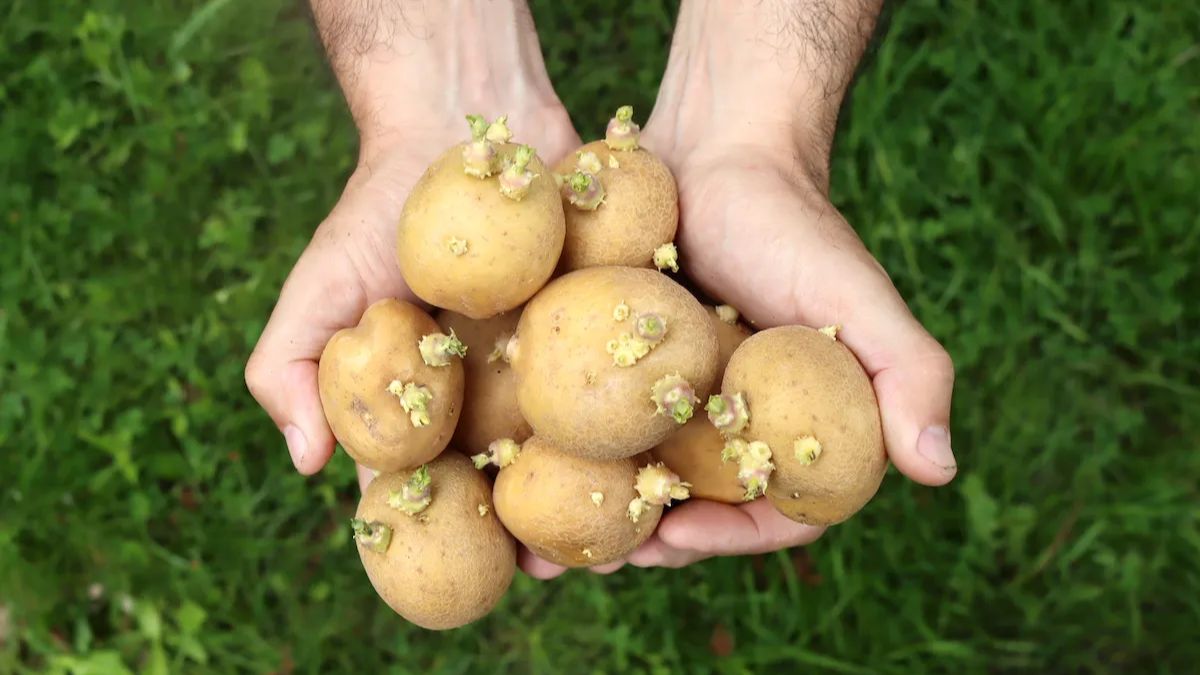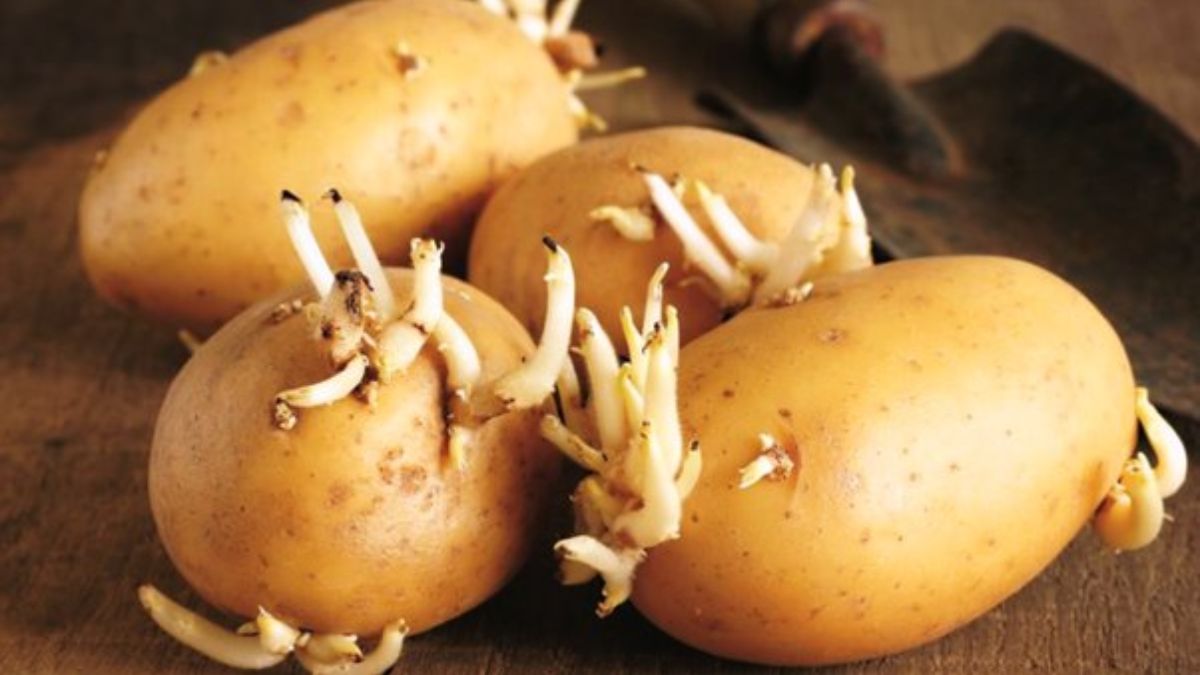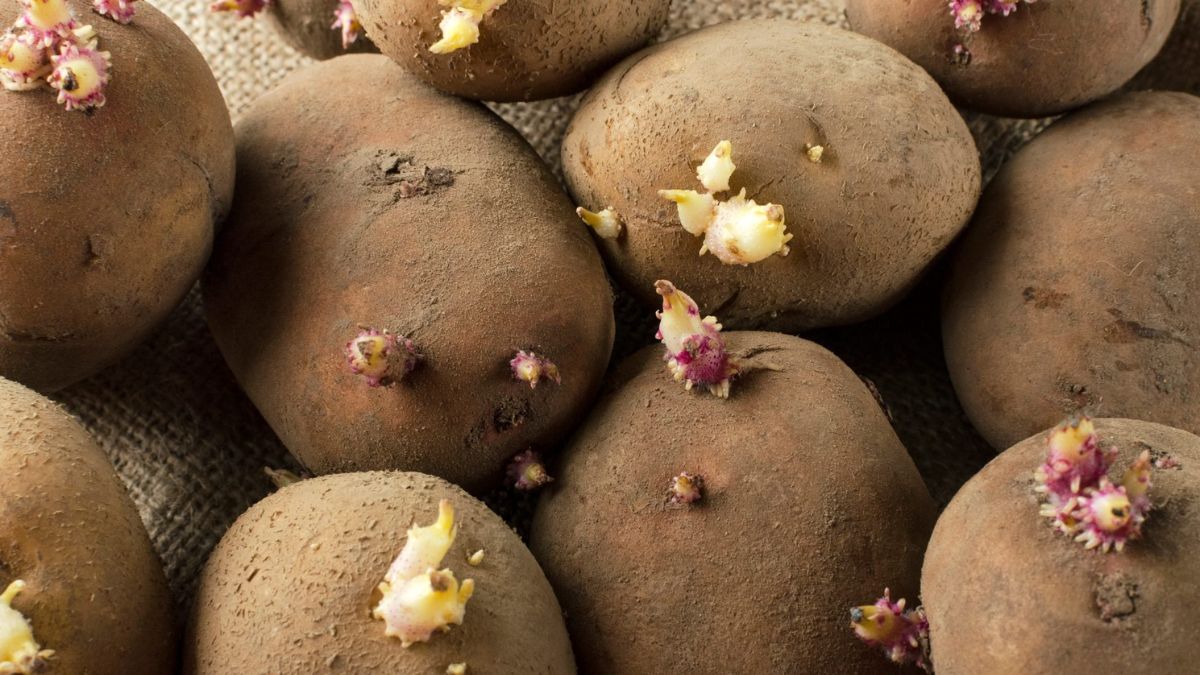
Sprouted potatoes, those with little white shoots emerging from their skin, are a common sight in our kitchens. While they may not look particularly appealing, they're a natural part of the potato's life cycle. But are they safe to eat? The answer, unfortunately, isn't a simple yes or no.
Table of Content:-
Sprouts and Solanine: A Risky Combination
Potatoes contain natural compounds called glycoalkaloids, most notably solanine. These act as a defence mechanism against insects and other predators. The good news? In normal amounts, they're perfectly harmless. The bad news? Sprouts and greening (exposure to light) signal the potato is trying to defend itself, and solanine levels increase significantly.

A 2022 study published in the Journal of Family Medicine and Primary Care highlights this concern. Researchers found that solanine poisoning can cause a range of unpleasant symptoms, including:
- Nausea and vomiting
- Diarrhea
- Stomach cramps
- Headache
- Confusion
In severe cases, solanine poisoning can even lead to death. While uncommon, it emphasises the importance of caution when dealing with sprouted potatoes.
Can You Remove the Sprouts and Eat the Rest?
Some people believe that simply removing the sprouts and green areas makes a sprouted potato safe to consume. There's limited research on the effectiveness of this method. Peeling may remove some solanine, but a study by the School of Medicine, University of Kocaeli noted that solanine is present throughout the flesh of the potato, not just concentrated in the sprouts or green parts. Additionally, cooking methods like boiling or frying seem to have little impact on solanine levels.
Also Read: Suspect Your Child Has Autism? Expert Shares How It Can Be Heavy Metal Poisoning Instead

When in Doubt, Throw it Out
Considering the potential health risks and the lack of definitive evidence on how to safely remove solanine, it's best to err on the side of caution. Here's what to do with sprouted potatoes:
- Discard them: This is the safest option, especially if the sprouts are long or there's significant greening.
- Plant them: Sprouted potatoes are a great way to grow your potato plants. Just be sure to remove any eyes (sprouts) before planting, as they can produce too many weak shoots.
- Compost them: Sprouted potatoes can be added to your compost pile, where they'll decompose and provide nutrients for your garden.
Preventing Sprouts in the First Place
Prevention is always better than cure. Here are some tips to keep your potatoes sprout-free for longer:
- Store them properly: Keep potatoes in a cool, dark, and well-ventilated place. Avoid storing them near onions or apples, as these fruits and vegetables release ethylene gas, which can accelerate sprouting.
- Buy firm potatoes: Choose potatoes that are firm and free of blemishes or greening.
- Use older potatoes first: If you have a mix of old and new potatoes, use the older ones first to avoid them sprouting in storage.
Also Read: 7 Vegetables That If Not Washed Properly May Cause Food Poisoning
While sprouted potatoes may not be inherently poisonous, the potential presence of high levels of solanine makes them a gamble. Considering the unpleasant side effects and the lack of foolproof methods for removing solanine, it's best to avoid them altogether. By storing potatoes properly and using them on time, you can keep your kitchen sprout-free and your meals safe.
Also watch this video
How we keep this article up to date:
We work with experts and keep a close eye on the latest in health and wellness. Whenever there is a new research or helpful information, we update our articles with accurate and useful advice.
Current Version